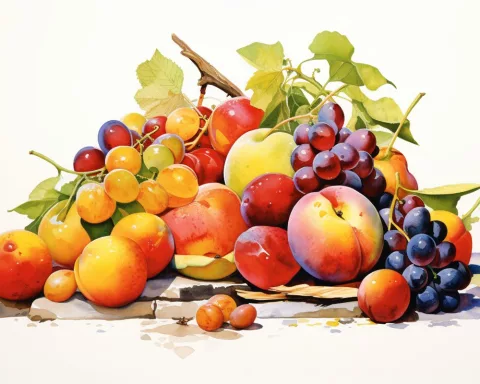Touch is a crucial aspect of human life and connection, playing a role in brain development, social bonding, stress relief, and pain management. Hugging, gentle caresses, hand-holding, and massage all have therapeutic benefits, impacting physical and emotional health. Touch is an unspoken language of emotions, conveying affection, empathy, and love without the need for words. Its power lies in its adaptability to individual preferences, reminding us of our inherent need for connection and wellness.
The Role of Touch in Human Life and Connection
Touch is a fundamental requirement for human beings, contributing to brain development and fostering crucial social connections. It plays an instrumental role in various aspects of our health and well-being, including stress relief and pain management. Touch is an unspoken language of our emotions, silently expressing affection, solace, empathy, and love.
Touch, a fundamental sensation stretching from birth to death, influences our life experiences and significantly impacts our emotional landscape. It acts as an unspoken language of our emotions, silently expressing affection, solace, empathy, and love. A mother’s gentle caress on her child’s face, a friendly squeeze during wordless moments, or the comforting touch from a loved one, all express an array of emotions without verbal communication.
The Role of Touch in Human Life and Connection
In the intricate maze of human existence, touch transcends mere physical sensation to become an irreplaceable component in human relationships. Surprisingly, something as straightforward as touch is a fundamental requirement for human beings. It contributes to brain development, enables bonding, and fosters crucial social connections. Its significance stretches even farther, playing an instrumental role in various aspects of our health and well-being.
Touch as a Stress Reliever
An ideal illustration of touch’s power is the simple act of hugging. A hug is not only a gesture of affection but also a potent stress relief tool. A brief or extended cuddle can significantly decrease cortisol levels, often known as the “stress hormone,” in the body following a stressful ordeal. The importance of such hormone regulation cannot be underestimated as prolonged stress can catalyse severe health problems like chronic inflammation, providing a foothold for cardiovascular disease and cancer. Encouragingly, research reveals that frequent hugging can decrease chronic inflammation indicators – achieved by merely two weeks of regular hugging. The effects of hugging stretch beyond stress reduction, as it has been proven to decrease blood pressure, reduce the risk of illness, and improve daily moods. Thus, a simple hug, though unassuming, carries a profound impact.
The Therapeutic Charm of Gentle Caress
The therapeutic impact of a gentle caress in the realm of touch is compelling. Not only does it provide comfort, but it also acts as a pain reducer. In 2018, a study demonstrated that gentle stroking could help infants manage pain during a routine heel prick blood test. The research showed that gentle touch was associated with lesser pain-related brain activity and reflexive withdrawal compared to those who did not receive any touch. Adults, too, have found relief in a gentle caress, with multiple studies indicating that gentle touch before experiencing pain from heat or pressure can diminish the perceived severity.
The scientific explanation behind this lies in the nerve fibers in our skin, termed c-tactile afferents, which are particularly responsive to comforting or caregiving touch, such as gentle skin stroking. For example, when someone gently strokes our arm, these c-tactile afferents on our skin presumably release chemicals like oxytocin, a hormone associated with bonding and tranquillity. Current research is exploring whether c-tactile touch could assist with chronic pain, with the results so far being inconclusive.
Hand-Holding: An Ally Against Anxiety
Hand-holding, a seemingly simple gesture, emerges as a powerful companion in addressing anxiety. A recent randomized controlled trial discovered that men who held a relative or nurse’s hand during a biopsy reported experiencing less anxiety and pain compared to those who did not. Other research also points towards the anxiety-reducing effects of hand-holding during potentially stressful situations.
The Benefits of Massage
Massage, a more sophisticated form of touch, comes with a plethora of advantages, from stress reduction and pain relief to enhanced relaxation. A massage triggers changes in the vagal and parasympathetic nervous system activity, commonly referred to as the “rest and digest” system, fostering relaxation and restoration. The person providing the massage also enjoys benefits, with research indicating decreased stress levels and improved mental clarity.
The Power and Significance of Touch
Although the preference for touch varies amongst individuals – with some cherishing it and others preferring specific types – its beauty lies in its adaptability to our preferences. Irrespective of the kind of touch, its potency and importance remain unwavering. Touch, in its various forms, contributes to our wellness, constantly reminding us of our inherent human need for connection.
What is the role of touch in human life and connection?
Touch is a fundamental requirement for human beings, contributing to brain development and fostering crucial social connections. It plays an instrumental role in various aspects of our health and well-being, including stress relief and pain management. Touch is an unspoken language of our emotions, silently expressing affection, solace, empathy, and love.
Can touch act as a stress reliever?
Yes, an ideal illustration of touch’s power is the simple act of hugging. A hug is not only a gesture of affection but also a potent stress relief tool. A brief or extended cuddle can significantly decrease cortisol levels, often known as the “stress hormone,” in the body following a stressful ordeal. The importance of such hormone regulation cannot be underestimated as prolonged stress can catalyse severe health problems like chronic inflammation, providing a foothold for cardiovascular disease and cancer.
How can a gentle caress help with pain management?
The therapeutic impact of a gentle caress in the realm of touch is compelling. Not only does it provide comfort, but it also acts as a pain reducer. Multiple studies indicate that gentle touch before experiencing pain from heat or pressure can diminish the perceived severity. The scientific explanation behind this lies in the nerve fibers in our skin, termed c-tactile afferents, which are particularly responsive to comforting or caregiving touch, such as gentle skin stroking.
Can hand-holding reduce anxiety?
Hand-holding, a seemingly simple gesture, emerges as a powerful companion in addressing anxiety. A recent randomized controlled trial discovered that men who held a relative or nurse’s hand during a biopsy reported experiencing less anxiety and pain compared to those who did not. Other research also points towards the anxiety-reducing effects of hand-holding during potentially stressful situations.
What are the benefits of massage?
Massage triggers changes in the vagal and parasympathetic nervous system activity, commonly referred to as the “rest and digest” system, fostering relaxation and restoration. The person providing the massage also enjoys benefits, with research indicating decreased stress levels and improved mental clarity. Massage is beneficial in stress reduction, pain relief, and enhanced relaxation.
Why is touch significant in human life?
Although the preference for touch varies amongst individuals, its beauty lies in its adaptability to our preferences. Irrespective of the kind of touch, its potency and importance remain unwavering. Touch, in its various forms, contributes to our wellness, constantly reminding us of our inherent human need for connection.












